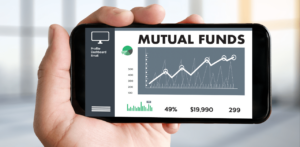Cryptocurrency trading is a dynamic and highly volatile market that operates under unique conditions. While traditional financial markets rely on technical and fundamental analysis, the cryptocurrency market is largely influenced by psychology. Understanding the impact of psychology on cryptocurrency trading is crucial for developing successful trading strategies and navigating the market’s unpredictable nature. In this article, we delve deeper into the role of psychology in cryptocurrency trading and provide valuable insights for traders.
The Significance of Psychology in Cryptocurrency Trading:
Unlike traditional markets, the cryptocurrency market lacks established indicators and predictable patterns. Technical analysis may not always yield accurate predictions, and fundamental analysis is often challenging due to the absence of an economic calendar and uncertainty regarding the influence of news on cryptocurrency prices. Instead, the cryptocurrency market is primarily driven by the psychology of both institutional and private investors.
Psychological Strategy for Cryptocurrency Trading:
To thrive in the cryptocurrency market, traders must adopt a psychological strategy that considers the following factors:
- Market Demand and Provisions: Analyze the amount of market demand and provisions. Avoid investing in currencies that cover more than 20% of the total market volume, as this may lead to potential risks.
- Diversification: Minimize risks by diversifying your cryptocurrency portfolio. Study the correlation between different cryptocurrencies and identify those with inverse relationships. This strategy helps to hedge against potential losses.
- Timing and Price: Capitalize on market corrections and buy cryptocurrencies when their prices experience significant drops (e.g., 20-25%). Avoid chasing rapid price increases, as they are often followed by corrections.
- Avoid Emotional Trading: Emotions can cloud judgment and lead to poor decision-making. Unlike traditional financial markets, cryptocurrency markets are unpredictable and influenced by rumors and manipulations. Stay focused on your trading strategy and avoid getting carried away by ordinary emotions.
Key Takeaways:
- The cryptocurrency market is driven by the psychology of investors, both institutional and private.
- Technical and fundamental analysis may have limited effectiveness in predicting cryptocurrency price movements.
- Traders should develop a psychological strategy that considers market demand, diversification, timing, and emotional discipline.
- Avoid investing in currencies that cover a significant portion of the total market volume to minimize risks.
- Capitalize on market corrections by purchasing cryptocurrencies during price drops.
- Emotional trading should be avoided, as the cryptocurrency market is highly unpredictable and influenced by rumors and manipulations.
Frequently Asked Questions:
Q1: How does psychology influence cryptocurrency trading?
A: Psychology plays a crucial role in cryptocurrency trading as it determines market sentiment, investor behavior, and the formation of price trends. Understanding the psychological factors at play can help traders make informed decisions.
Q2: Can technical analysis be applied to cryptocurrency trading?
A: While technical analysis can provide some insights, the cryptocurrency market is highly volatile and often defies traditional technical analysis indicators. Traders should be cautious when relying solely on technical analysis for predicting price movements.
Q3: How can traders manage risk in cryptocurrency trading?
A: Risk management in cryptocurrency trading involves diversifying the portfolio, setting appropriate stop-loss orders, and avoiding excessive exposure to a single cryptocurrency. Following a well-defined trading plan and adhering to strict risk management principles is essential.
Q4: Should traders react to market rumors and news in the cryptocurrency market?
A: It is important to exercise caution when reacting to market rumors and news in the cryptocurrency market. Rumors are often used as a tool for manipulation, and the impact of news on cryptocurrency prices can be unpredictable. Traders should conduct thorough research and consider multiple factors before making trading decisions.
Conclusion:
Psychology plays a significant role in cryptocurrency trading, shaping market sentiment and influencing price trends. Traders must develop a psychological strategy that takes into account market demand, diversification, timing, and emotional discipline. While technical and fundamental analysis has their limitations in the cryptocurrency market, understanding the psychological aspects can enhance trading decisions and mitigate risks. By adopting a well-informed and disciplined approach, traders can navigate the volatile cryptocurrency market more effectively and increase their chances of success.








